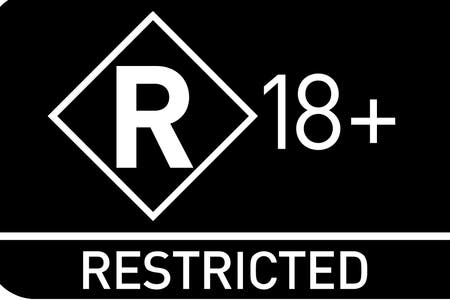Industry offers mixed response to new Australian R18+ rating
Guidelines say that games may have "greater impact" on minors than film.
The Australian games industry has given a mixed response to the long awaited guidelines for the new R18+ rating which covers games with adult content.
In the past, Australia has had a notoriously strict approach to games content, with many popular games requiring changes to content before being allowed on sale, or else being banned outright. Anything rated higher than MA15+ was unable to be legally sold in shops, essentially killing such titles at retail.
Notable recent examples include Left 4 Dead 2, which was refused a rating, and was only allowed for sale in a heavily censored form. The remake of Syndicate was banned outright for "depictions of frequent mutilations" while The Witcher 2 was also unable to be released in Australia, until a side quest was rewritten so that the reward for success was not sexual in nature.
The R18+ rating, passed into law in June and to be implemented in 2013, would theoretically make it possible for such games to be sold unchanged, although Kotaku's Australian site points out there is still a grey area where depictions of drug use are involved. Games may still be banned if the feature "illicit or proscribed drug use related to incentives or rewards" or "interactive drug use which is detailed and realistic". Bad news for everyone looking forward to Kirby's Colour Pop Crackhouse.
The wording that has attracted the most adverse comment comes from the section entitled Using the Guidelines: Essential Principles. This section makes the point that context is important when gauging the impact of game content, but ruffles feathers by singling games out from other media as having potentially more "impact" than film.
"Due to the interactive nature of computer games and the active repetitive involvement of the participant, as a general rule computer games may have a higher impact than similarly themed depictions of the classifiable elements in film, and therefore greater potential for harm or detriment, particularly to minors."
In a statement the Interactive Games and Entertainment Association, Australia's leading games industry trade body, acknowledged that the guidelines "have been crafted to try to balance the concerns of those who have resisted an R18+ classification and adults who want to play video games designed specifically for mature audiences and that are readily available in other developed democracies" but expressed disappointment that they "hold video games to a higher standard across a number of categories compared to film."
The statement continued: "As we have previously stated, we are concerned with the acknowledgment in the guidelines that interactivity has greater impact on players, despite the Federal Attorney-General's office publishing a literature review in September 2010 that found no evidence to support these claims. There will be continued debate about whether the interactivity of video games has a greater impact than other forms of media, and we will continue to refer to the lack of the evidence to support these claims."
You can read the 13 page guidelines document for yourself here.

